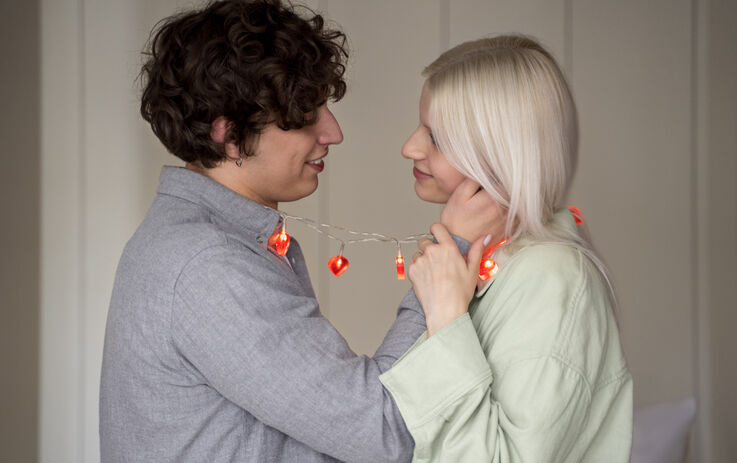Highlights
- Healing wounded couples can be possible through psychotherapy from a mental health professional.
- Marriage Counselling is one of the most effective psychotherapy techniques.
- Couples need to understand that the issue they are facing in their relationship can be caused by underlying mental disorders.
- Therapy helps by breaking negative cycles in thoughts and behavior.
Relationships can get emotionally exhausting and love fades in the way of just avoiding severe arguments. At McDowall Integrative Psychology & Healthcare, we understand that healing wounded couples isn’t always easy.
Couples suffer from ups and downs, and sometimes, those downs feel like they’ll never end. Maybe you and your partner keep having the same arguments. Maybe you feel like you’re drifting apart, even though you still care. Or maybe trust has been broken, and you’re unsure if it can ever be repaired. Marriage counseling is one way out of these problems.
If this sounds familiar, take a deep breath. You’re not alone; more importantly, your relationship isn’t beyond saving.
We’ve worked with countless couples who’ve felt hopeless at one point or another, and we’ve seen something incredible happen: when two people are willing to put in the effort, healing is possible. This psychotherapy guide talks about what that healing looks like, step by step.

Why Do We Keep Fighting About the Same Things?
Have you ever noticed how small arguments turn into big ones? Maybe it starts with a simple disagreement like someone forgetting to pick up groceries, someone leaving their phone on the table during dinner, or someone didn’t respond the way the other person expected. Before you know it, you’re in an all-too-familiar cycle of frustration, silence, or raised voices.
Most couples assume they’re fighting about the issue at hand, but the truth is, most fights aren’t really about the dishes or the late replies. The root cause for these arguments might be their deteriorating mental health.
Maybe when your partner forgets something important, it makes you feel unimportant. Maybe when they check out emotionally, it brings up old fears of being abandoned. Maybe when they criticize something small, it stings because it reminds them of never feeling good enough.
Once you realize these arguments are about something deeper, you can stop fighting the surface battles and start working on your mental wellness.
How Empathy Can Help You Heal
One of the biggest game-changers for struggling couples is learning to see each other again. When we’re upset, it’s easy to focus on how hurt we feel and forget that our partner is hurting too.
Instead of reacting with frustration, try asking yourself:
- What is my partner feeling right now?
- What are they trying to say, even if they’re not saying it the right way?
- How can I demonstrate my concern for them, even in situations where we disagree?
Sometimes, your partner’s anger isn’t anger; it’s sadness, fear, exhaustion, or anxiety. And sometimes, the way they pull away isn’t because they don’t love you, but because they don’t know how to deal with the mental disorders they are going through.
The more you look beyond the surface, the more you realize that you’re not fighting against each other. Healing wounded couples is about fighting for the same thing: love, connection, and understanding.
The Power of Feeling Heard and Understood
Think about the last time you felt dismissed. Maybe you shared something that was bothering you, and instead of listening, the other person told you to “just get over it.” It hurts, right?
Now think about how your partner feels when their emotions aren’t acknowledged.
Validation is one of the simplest yet most powerful ways to have a healthier mind. It doesn’t mean you have to agree with everything your partner says, but it does mean showing that their feelings matter. Healing wounded couples is more about acknowledging where the other person stands.
Instead of saying:
“You’re being too sensitive.”
Try saying:
“I can see why that upset you. That wasn’t my intention, but I understand why you feel that way.”
A small shift in words can create a huge shift in trust and emotional safety.
How to Communicate Without Fighting
If communication in your relationship feels like walking through a minefield, you’re not alone. Many couples get stuck in the cycle of talking, misunderstanding, and shutting down. Engaging with a certified psychologist in Toronto, who specializes in healing wounded couples, can assist you in navigating relationship challenges.
The good news? Communication is a skill, not just something you’re “good at” or not.
Here’s how to start changing the way you talk to each other:
- Slow Down Before Responding: Instead of reacting in the heat of the moment, pause. Take a breath and ask yourself, “How do I want this conversation to go?”
- Speak With “I” Statements: Instead of “You never listen to me!”, try “I feel unheard when I’m sharing something important.”
- Listen to Understand, Not to Respond: Too often, we’re just waiting for our turn to talk instead of really hearing what’s being said. Try to really listen, even if you don’t like what you’re hearing.
When you both feel safe to express yourselves, conversations become about connection, not conflict. This is also a good practice to boost self-confidence.

Breaking Free From Negative Patterns
We all have patterns we fall into when relationships get tough. Maybe you shut down when things get hard. Maybe you suffer from anxiety and depression. Maybe you lash out. Maybe you hold onto resentment instead of talking things through.
These habits often come from past experiences, maybe from childhood, maybe from past relationships, or maybe from deep insecurities we don’t even realize we have.
The first step to changing these patterns is recognizing them through psychotherapy techniques. When you understand why you react the way you do, you can start choosing a different response. And when you both commit to changing unhealthy behaviors together, you stop being enemies and start being teammates again.
How to Let Go and Move Forward
Holding onto resentment is like carrying a heavy weight. You might not notice it at first, but over time, it drains you.
Forgiveness isn’t about saying, “It’s okay.”. It’s about saying, “I choose to move forward with you.”
Healing wounded couples is not easy. It takes time. But when both partners are willing to put in the work, trust can be rebuilt.
- Start small.
- Find little moments to appreciate each other.
- Express gratitude, even for the tiniest things.
- Make space for laughter and lightness again.
Love doesn’t disappear overnight. It fades when it’s not nourished but that means it can be rekindled when both partners decide to fight for it.
Taking the First Step Toward Healing
Relationships aren’t perfect. Love doesn’t always feel effortless. And sometimes, getting back to a good place requires help.
If you and your partner are struggling, don’t be afraid to reach out. Therapy isn’t about proving who’s right or wrong; it’s about learning how to be a team again. It’s about breaking out of old cycles, healing wounded couples, and creating a relationship that feels good for both of you.
